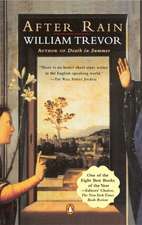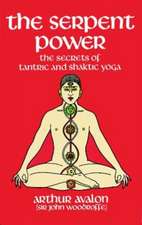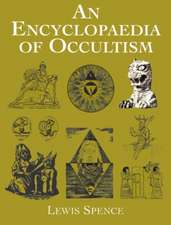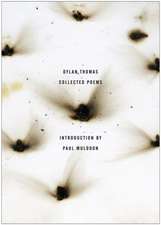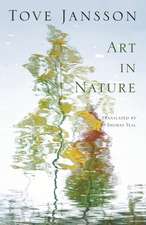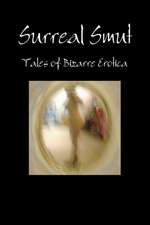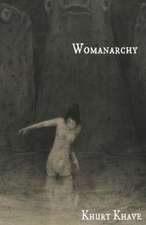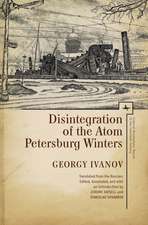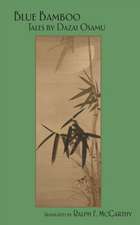Bedroom Roulette: TruLOVE Collection
Autor Anonymous Editat de Ron Hoganen Limba Engleză Paperback – 11 feb 2013
What was love really like in the 1970s? Women were marching forward in the Women’s Movement, “bringing home the bacon,” exercising their newfound sexual freedom, and still searching for true love. Introducing, Bedroom Roulette, the latest book in the TruLOVE Collection series, guest edited by romance book expert Ron Hogan.
Bedroom Roulette is a collection of 13 love stories focused on the changing lives, loves and careers of women in the ‘70s. It’s hard to resist these tantalizing tales with titles like:
· “Bedroom Roulette – The Game Suburban Housewives Play”
· “We Joined Our Teenage Daughter at a Free-Love Farm”
· “The Night My Husband Demanded an Orgy”
· “Why Not? We Used To Be Married”
Hogan provides a revealing look at various kinds of love stories from the early 1970s in America. Topics that were previously taboo were now being discussed in “polite” society. The sexual revolution was in full swing and the feminist movement was taking hold. Pop culture is alive and well in Bedroom Roulette as it gives readers a “fly on the wall” peek at a pivotal moment in American cultural history. Many of the stories included in this TruLOVE Collection will surprise—and possibly shock--the reader.
Bedroom Roulette is a collection of 13 love stories focused on the changing lives, loves and careers of women in the ‘70s. It’s hard to resist these tantalizing tales with titles like:
· “Bedroom Roulette – The Game Suburban Housewives Play”
· “We Joined Our Teenage Daughter at a Free-Love Farm”
· “The Night My Husband Demanded an Orgy”
· “Why Not? We Used To Be Married”
Hogan provides a revealing look at various kinds of love stories from the early 1970s in America. Topics that were previously taboo were now being discussed in “polite” society. The sexual revolution was in full swing and the feminist movement was taking hold. Pop culture is alive and well in Bedroom Roulette as it gives readers a “fly on the wall” peek at a pivotal moment in American cultural history. Many of the stories included in this TruLOVE Collection will surprise—and possibly shock--the reader.
Preț: 89.66 lei
Nou
Puncte Express: 134
Preț estimativ în valută:
17.16€ • 18.65$ • 14.43£
17.16€ • 18.65$ • 14.43£
Carte tipărită la comandă
Livrare economică 21 aprilie-05 mai
Preluare comenzi: 021 569.72.76
Specificații
ISBN-13: 9780988762701
ISBN-10: 0988762706
Pagini: 231
Dimensiuni: 152 x 226 x 20 mm
Greutate: 0.41 kg
Editura: Broadlit
Colecția BroadLit
ISBN-10: 0988762706
Pagini: 231
Dimensiuni: 152 x 226 x 20 mm
Greutate: 0.41 kg
Editura: Broadlit
Colecția BroadLit
Cuprins
INTRODUCTION by Ron Hogan
BEDROOM ROULETTE
The Game Suburban Housewives Play
OUR NEIGHBORHOOD SEX TEAM
We all played every game.
MY HUSBAND’S LOVE POTION FROM VIETNAM
He thought it was the only thing that would make him a man again
SOMEONE IS MAKING OBSCENE PHONE CALLS TO MY WIFE - Is it our son?
We joined our teenage daughter at a
FREE-LOVE FARM
Four in a bed.
THE NIGHT MY HUSBAND DEMANDED AN ORGY
Male, female, the third sex and
THE FOURTH SEX - -My Husband!
MISS NOVEMBER AND MR. JOE NAMATH
My friends, my relatives, everyone thinks I’m a monster
I DON’T WANT CUSTODY OF MY CHILDREN
WHY NOT? WE USED TO BE MARRIED!
WE’RE JUST TWO GIRLS IN LOVE – WITH EACH OTHER
To save my marriage I’d do even this…
THREE IN A BED
THE PILL THAT FAILED
It produced triplets and a husband
BEDROOM ROULETTE
The Game Suburban Housewives Play
OUR NEIGHBORHOOD SEX TEAM
We all played every game.
MY HUSBAND’S LOVE POTION FROM VIETNAM
He thought it was the only thing that would make him a man again
SOMEONE IS MAKING OBSCENE PHONE CALLS TO MY WIFE - Is it our son?
We joined our teenage daughter at a
FREE-LOVE FARM
Four in a bed.
THE NIGHT MY HUSBAND DEMANDED AN ORGY
Male, female, the third sex and
THE FOURTH SEX - -My Husband!
MISS NOVEMBER AND MR. JOE NAMATH
My friends, my relatives, everyone thinks I’m a monster
I DON’T WANT CUSTODY OF MY CHILDREN
WHY NOT? WE USED TO BE MARRIED!
WE’RE JUST TWO GIRLS IN LOVE – WITH EACH OTHER
To save my marriage I’d do even this…
THREE IN A BED
THE PILL THAT FAILED
It produced triplets and a husband
Notă biografică
By Anonymous*
*The stories presented here were first published as "true stories" . . . at a time when it was necessary to hide the true identities of the women associated with these tales to avoid scandal. We have chosen to maintain the veil of the authors' anonymity to protect the innocent . . . and the not so innocent. The timeless love stories from True Romance and True Love live on.
Edited By:
Ron Hogan co-founded Lady Jane's Salon, a monthly reading series dedicated to romance fiction, and has been its primary host since 2009. He's also produced literary events throughout New York City, and was one of the first people to launch a book-related website, Beatrice.com. In addition to digging through the TruLoveStories archives for great stories, he publishes a digital magazine (also called Beatrice!) of interviews with some of today's best writers.
*The stories presented here were first published as "true stories" . . . at a time when it was necessary to hide the true identities of the women associated with these tales to avoid scandal. We have chosen to maintain the veil of the authors' anonymity to protect the innocent . . . and the not so innocent. The timeless love stories from True Romance and True Love live on.
Edited By:
Ron Hogan co-founded Lady Jane's Salon, a monthly reading series dedicated to romance fiction, and has been its primary host since 2009. He's also produced literary events throughout New York City, and was one of the first people to launch a book-related website, Beatrice.com. In addition to digging through the TruLoveStories archives for great stories, he publishes a digital magazine (also called Beatrice!) of interviews with some of today's best writers.
Extras
INTRODUCTION
by Ron Hogan
When the TruLoveStories website went live, the first section I started exploring was "A Century of Love," which features True Love and True Romance stories from the 1920s up through the last decade. When I got to the 1970s section, and the story "My Mother's Lover Is My Husband," I knew I was in for a wild ride, but the cover to the May 1970 issue of True Love promised even crazier stories: "My Best Friend Stole My Baby," "Every Week My Doctor Drugs Me," and the "shocker of the year," a partner-swapping tale called "You Give Me Your Husband and I'll Give You Mine."
I joked on Twitter that the folks at TruLoveStories should turn me loose in the archives so I could come up with a whole anthology's worth of crazy love stories from the 1970s. It turns out they were paying attention—and here we are!
A few years back, I wrote a book about Hollywood in the 1970s called The Stewardess Is Flying the Plane! In it, I talked about the ways in which the films of that decade show us how the "countercultural" trends of the late 1960s became increasingly mainstream, presenting subjects that were previously taboo to larger and larger audiences. American society was in flux: Watergate and Vietnam had caused many people to lose faith in the government and other authority figures; the sexual revolution threatened the stability of marriage; the feminist movement shifted the balance of power between men and women. And each week, new films would come out that reflected these tensions, wrapping them in stories that (ideally) engaged their audiences.
It wasn't just about the movie theaters, though.
I don't want to oversell this idea too much as far as these stories are concerned. The fact is, if you look at an issue of True Love or True Romance from the early 1970s, chances are the contents will ultimately reinforce the status quo. Marriage is good; marriage with a kid, or one on the way, is even better. The hedonistic pursuit of pleasure comes with consequences, but if you're lucky you can clean up your act and start making a better life for yourself.
Some of the ways in which these stories deal with the counterculture are predictable. Dirty hippies using drugs and sex to lead innocent, if mildly rebellious, girls astray is like the '70s equivalent of a melodrama cad twirling his mustache. Sexual experimentation inevitably leads to shame and regret—the heroine who let another woman's husband into her bed may have had mind-blowing orgasms, but she'd feel dirty about it for a long, long time.
The more time you spend really digging into these stories, though, the more surprises you'll find. I was lucky enough to find a story in which the hippies living out on the commune aren't portrayed as sex-crazed monsters. Often, when gay and lesbian characters appear, the narrators refuse to condemn their behavior. (Granted, being held up as objects of pity isn't much better, but it's a start.) And though some of the women in these stories meekly accept the blame for all the hardships they suffer, other women can be seen taking charge of their lives, refusing a relationship with a man unless they can have it on equal terms.
There are also a few stories here that are just so far out there, with such crazy plots, I absolutely knew I had to have them in this collection. As you read these stories, though, don't think of them as just wacky pop culture artifacts from the past. Sure, some of this stuff comes off a bit silly now, but beyond the entertainment and nostalgia value, you'll get a glimpse at a pivotal moment in American cultural history.
I'm something of a late bloomer when it comes romance fandom, and my points of entry into the genre were basically Regency historicals, which tend to deal with aristocratic characters, and the "chick lit" of the early 2000s, which was often about middle class women in large cities striving for both personal and professional success.
The stories from early '70s True Love and True Romance come from a much different place. Characters tend to come from small towns; if they wind up in a big city, it's quite likely something bad will happen to them there. If the women are old enough, they're usually housewives; women who do work are often stuck at the secretarial level—and, in any case, they're probably only working until they get married.
For the most part, these are working class stories, with strong aspirational qualities. (There are some stories with middle class settings here, but they can feel a bit staged—fantasies of what life might be like for white-collar workers living in apartment buildings in big cities.) The men are doing their best to provide a stable home for their loved ones, and the women are doing their best to be supportive of their men. Their financial security is by no means guaranteed—and those money problems can be a powerful source of conflict.
These stories are like a snapshot of what was on America's mind in the early 1970s, and as I continue to explore the TruLoveStories archives, I'm going to be very interested in how the stories changed over time, to see what their creators portrayed as the biggest threats to "true love" and happy marriages. I've already found more great '70s stories than I could fit into this one collection, and I'm about to plunge into the 1980s next...
by Ron Hogan
When the TruLoveStories website went live, the first section I started exploring was "A Century of Love," which features True Love and True Romance stories from the 1920s up through the last decade. When I got to the 1970s section, and the story "My Mother's Lover Is My Husband," I knew I was in for a wild ride, but the cover to the May 1970 issue of True Love promised even crazier stories: "My Best Friend Stole My Baby," "Every Week My Doctor Drugs Me," and the "shocker of the year," a partner-swapping tale called "You Give Me Your Husband and I'll Give You Mine."
I joked on Twitter that the folks at TruLoveStories should turn me loose in the archives so I could come up with a whole anthology's worth of crazy love stories from the 1970s. It turns out they were paying attention—and here we are!
A few years back, I wrote a book about Hollywood in the 1970s called The Stewardess Is Flying the Plane! In it, I talked about the ways in which the films of that decade show us how the "countercultural" trends of the late 1960s became increasingly mainstream, presenting subjects that were previously taboo to larger and larger audiences. American society was in flux: Watergate and Vietnam had caused many people to lose faith in the government and other authority figures; the sexual revolution threatened the stability of marriage; the feminist movement shifted the balance of power between men and women. And each week, new films would come out that reflected these tensions, wrapping them in stories that (ideally) engaged their audiences.
It wasn't just about the movie theaters, though.
I don't want to oversell this idea too much as far as these stories are concerned. The fact is, if you look at an issue of True Love or True Romance from the early 1970s, chances are the contents will ultimately reinforce the status quo. Marriage is good; marriage with a kid, or one on the way, is even better. The hedonistic pursuit of pleasure comes with consequences, but if you're lucky you can clean up your act and start making a better life for yourself.
Some of the ways in which these stories deal with the counterculture are predictable. Dirty hippies using drugs and sex to lead innocent, if mildly rebellious, girls astray is like the '70s equivalent of a melodrama cad twirling his mustache. Sexual experimentation inevitably leads to shame and regret—the heroine who let another woman's husband into her bed may have had mind-blowing orgasms, but she'd feel dirty about it for a long, long time.
The more time you spend really digging into these stories, though, the more surprises you'll find. I was lucky enough to find a story in which the hippies living out on the commune aren't portrayed as sex-crazed monsters. Often, when gay and lesbian characters appear, the narrators refuse to condemn their behavior. (Granted, being held up as objects of pity isn't much better, but it's a start.) And though some of the women in these stories meekly accept the blame for all the hardships they suffer, other women can be seen taking charge of their lives, refusing a relationship with a man unless they can have it on equal terms.
There are also a few stories here that are just so far out there, with such crazy plots, I absolutely knew I had to have them in this collection. As you read these stories, though, don't think of them as just wacky pop culture artifacts from the past. Sure, some of this stuff comes off a bit silly now, but beyond the entertainment and nostalgia value, you'll get a glimpse at a pivotal moment in American cultural history.
I'm something of a late bloomer when it comes romance fandom, and my points of entry into the genre were basically Regency historicals, which tend to deal with aristocratic characters, and the "chick lit" of the early 2000s, which was often about middle class women in large cities striving for both personal and professional success.
The stories from early '70s True Love and True Romance come from a much different place. Characters tend to come from small towns; if they wind up in a big city, it's quite likely something bad will happen to them there. If the women are old enough, they're usually housewives; women who do work are often stuck at the secretarial level—and, in any case, they're probably only working until they get married.
For the most part, these are working class stories, with strong aspirational qualities. (There are some stories with middle class settings here, but they can feel a bit staged—fantasies of what life might be like for white-collar workers living in apartment buildings in big cities.) The men are doing their best to provide a stable home for their loved ones, and the women are doing their best to be supportive of their men. Their financial security is by no means guaranteed—and those money problems can be a powerful source of conflict.
These stories are like a snapshot of what was on America's mind in the early 1970s, and as I continue to explore the TruLoveStories archives, I'm going to be very interested in how the stories changed over time, to see what their creators portrayed as the biggest threats to "true love" and happy marriages. I've already found more great '70s stories than I could fit into this one collection, and I'm about to plunge into the 1980s next...

